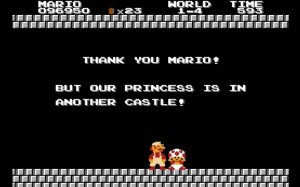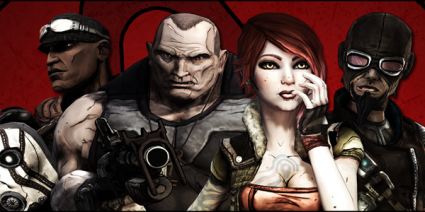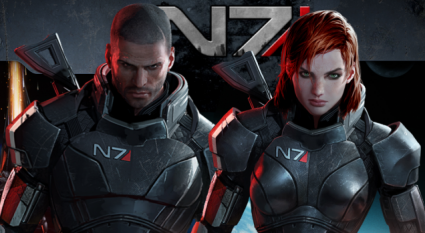Diversity in Gaming
There exists a problem in today’s video-game cultre. Go to your localgame store, close your eyes, and pluck from the wall any sealed plastic rectangle; chances are it has a middle-aged white male protagonist that you will be playing as for the whole eight-hour experience. Some people might ask why this is a problem; as long as the gameplay can be fun for everyone, what’s the big deal? In reality, the answer is as simple as this; the gaming population houses much more variety than just white twenty-something males. For example, with 48% of gamers being female to start. Our world is full of different people, and it’s time we appreciated that fact (Entertainment Software Association).
There is such importance in diversity. Not only is it important to everyone to be able to identify in some way with a character in a game, or even a movie; it is detrimental to society that we experience, on a daily basis, the viewpoints of other people. Imagine if every one of our games, we only played them from the view of one identity, again two things would happen; the alienation of everyone who did not fit the bill of our one-sided characters, and the distorted view of our misrepresented culture. I happen to fall under the description of the young white male; so it is important to me that there are some characters that I can identify with, and that if character-customization is an option, I have the ability to make someone that represents myself. However, I want to play as different characters! I want to play as powerful women, who are not just used as decorations in the background. I want to play as the thirty-something homosexual guy from Spain, as long as the characters are interesting. If a game developer can make a strong and dynamic cast of characters that the player can sympathize with, they should be successful regardless of the identity of those characters.
If we take a look at how games represent diversity today, we can see games that get it right, and games that get it wrong. There are two paths to take when trying to make a game cater to anyone who might pick it up. The first is to have complete customization of the character, allowing the player to truly be anyone they want. So if players want to be a six-foot-seven, androgynous, blue-skinned person; they got it! These games typically tend to have less of the narrative focused on the player themselves, and more on the events taking place around them. Games such as Dark Souls, The Sims, and Skyrim come to mind when thinking about this approach, and they all have something in common; the focal point of the story is on the events in the world around them, rather than the player. This is because you can’t write a story specific to a character who has a million different customization options, while bestowing upon them a rich backstory that does not feel completely generic.
The other strategy is to throw customization out the window, and replace it with a dynamic cast of characters. One of the best examples of this would have to be the Borderlands series. At the start of Borderlands 2 the player is given a choice between four very different characters: A short-statured Latino male, with a passion for all things guns, a well-built black male with an imposing voice and figure, a faceless assassin clad in black, and a bad-ass looking female “siren” or magic user. These are all fully realized characters with strengths and weaknesses that make them interesting. The game also includes a hilarious running dialogue seemingly satirizing the lack of diversity in this medium.
What about gender-equality in video games. With over half the gaming population housing the female audience, do games treat both genders equally? The short answer is no, but we are getting there. The problem currently tends to be a lack of strong female protagonists and characters in games; whereas the problem used to be anti-women tropes in video games. Think back to the original Mario or The Legend of Zelda games. The theme of both of these games, is that a woman you care about is repeatedly being stolen and no one but the male hero can save her; also referred to as the “damsel in distress trope”. I remember playing these games and being frustrated because I wanted Peach or Zelda to fight back and do something about the situation, instead of just waiting for their rescuer. These games were revolutionary and fun to play but even without the arguably sexist themes, you knew that the story arch would be the same in the next one; the love interest would be stolen, and you would save them. It made for a weak story and a bit of frustration.
Now, today, we see a different problem; games where you can only play as a man, the cast of characters are mainly men, and if there are women, they are the love interests of the men and nothing more than set pieces. Games like Assassins Creed and Call of Duty are notorious for this. In fact, when asked by fans why there were no female options for online multiplayer or any women included in the main cast of Assassin’s Creed Unity, game director Alex Amancio said that it would simply be too much work and stated, "It's double the animations, it's double the voices, all that stuff and double the visual assets. Especially because we have customizable assassins. It was really a lot of extra production work." However the former Assassin’s Creed designer Jonathan Cooper later stated, "In my educated opinion, I would estimate this to be a day or two's work. Not a replacement of 8,000 animations" (Farokhmanesh). This seems to be just sheer laziness on the side of developer Ubisoft, and rather disrespectful to the gaming population as a whole.
There are some serious issues plaguing diversity in gaming today, but there are/have been games that give us hope of a promising, exciting, and equal gaming future. Our world is full of interesting people, and it’s about time we started showing it in this medium
 Dark Souls Review
Dark Souls Review
 Post title...
Post title...



 tparkert14
tparkert14